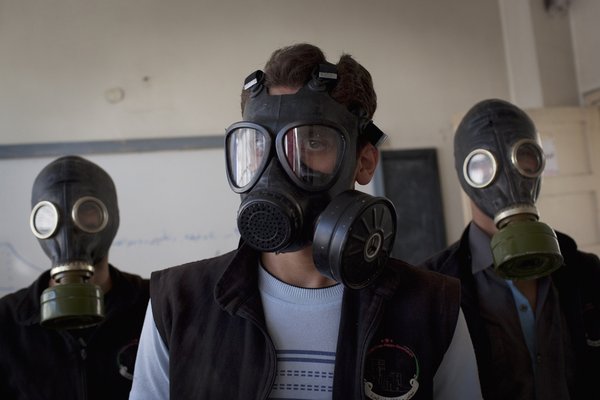A series of revelations about the chemical attack in Syria’s eastern Ghouta is doubting US accusation that the Syrian government has launched the gas assault.
A series of revelations about the chemical attack in Syria’s eastern Ghouta is doubting US accusation that the Syrian government has launched the gas assault.
A team of US experts meeting this week in Washington, concluded that the rocket that delivered sarin to a Damascus suburb last summer could not have been fired from the Syrian government positions.
They said that the range of the rocket that delivered sarin in the largest attack that  night was too short for the device to have been fired from the Syrian government positions where the Obama administration insists they originated.
night was too short for the device to have been fired from the Syrian government positions where the Obama administration insists they originated.
Separately, international weapons experts are puzzling over why the rocket in question — an improvised 330 mm to 350 mm rocket equipped with a large receptacle on its nose to hold chemicals — reportedly did not appear in the Syrian government’s declaration of its arsenal to the Organization for the Prohibition of Chemical Weapons and apparently was not uncovered by OPCW inspectors who believe they have destroyed Syria’s ability to deliver a chemical attack.
The authors of a report released Wednesday said that their study of the rocket’s design, its likely payload and its possible trajectories show that it would have been impossible for the rocket to have been fired from inside areas controlled by the Syrian government.
In the report, “Possible Implications of Faulty U.S. Technical Intelligence,” Richard Lloyd, a former United Nations weapons inspector, and Theodore Postol, a professor of science, technology and national security policy at the Massachusetts Institute of Technology, argue that the question about the rocket’s range indicates a major weakness in the case for military action initially pressed by Obama administration officials.
The administration eventually withdrew its request for congressional authorization for a military strike after Syria agreed to submit to the Chemical Weapons Convention, which bans the weapons. Polls showed overwhelming public opposition to a military strike, however, and it was doubtful Congress would have authorized an attack.
Relying on mathematical projections about the likely force of the rocket and noting that its design — some have described it as a trash can on a stick — would have made it awkward in flight, Lloyd and Postol conclude that the rocket likely had a maximum range of a little more than 1.2 miles. That range, the report explains in detail, means the rockets could not have come from land controlled by the Syrian government.